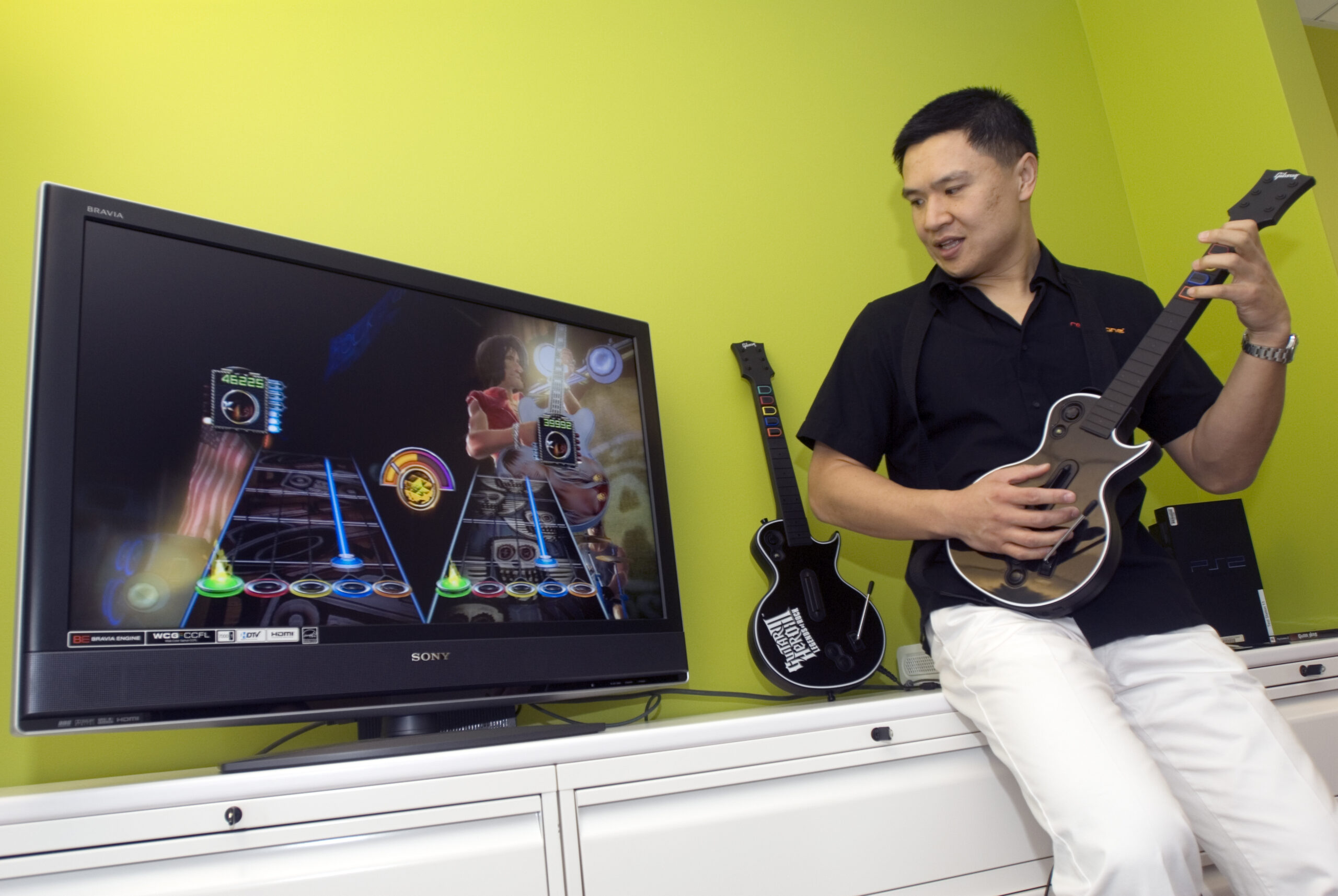07 May

The Rise of Social Gaming in the 2000s
In 2005, my company, RedOctane, released Guitar Hero. It helped spark the social gaming boom. These were games (mostly on consoles) that people played together in the same room.
Back in that era, friends getting together in person was a big part of gaming. We promoted the idea of Guitar Hero parties after seeing this phenomenon amongst our earliest players. In a 2008 New York Times interview, Lorne Michaels, the longtime producer of Saturday Night Live, even said, “Our biggest competition is not so much other television shows as it is Guitar Hero.”
Guitar Hero, Rock Band, and Wii Sports Defined an Era
It wasn’t just a social phenomenon, it was big business. In 2007–2008, Guitar Hero was the best-selling video game franchise in the world, while our competitor Rock Band was also topping charts.
In 2006, Nintendo released the Wii, bundled with Wii Sports, a pack of mini games that were incredibly fun to play together. The popularity of Wii Sports powered sales of the Wii, which became the best-selling console of its generation and turned Nintendo into one of Japan’s most valuable companies.
Games That Strengthened Families and Friendships
Families enjoyed the unique, multigenerational interaction. Shortly after releasing Guitar Hero 1, we received a heartfelt letter from a dad who described reconnecting with his teenage daughter through the game. His story highlighted how in-person gaming created bonds, sparked conversations across generations, and built lasting memories.
These games were more than entertainment—they were a social glue. Playing video games in person carried a different vibe, one rooted in connection and shared joy.
The Shift from Offline Fun to Online Play
As gaming moved online, behaviors changed. Players often became more reclusive, and interactions sometimes turned toxic. This is a predictable shift when you never see the human being on the other side of the screen. And it’s not unique to gaming—it mirrors behavior across much of the internet.
Why We Need a Revival of Social Gaming
Online gaming remains an incredible innovation, but I believe bringing back more in-person and hybrid social games could help foster healthier interactions. By reintroducing games that encourage face-to-face play, we can remind players how positive gaming communities can feel, both online and offline.
About Charles Huang
Charles Huang – LinkedIn
Charles Huang is a co-founder of RedOctane and the co-creator of the Guitar Hero video game franchise. In 2005, the company published Guitar Hero, which went on to become the fastest video game to reach $1B in sales. Activision acquired RedOctane in June 2006. Guitar Hero was the best-selling video game in the world in 2007 and 2008. Mr. Huang currently serves as board of directors of several startups and non profit organizations. He teaches entrepreneurship at the University of California at Berkeley and is the past Chair of the UC Berkeley Foundation. He serves on the board of the Asian Art Museum of San Francisco.
Mr. Huang immigrated to California as a young child and currently resides in Silicon Valley with his wife, Lillian. They have 2 daughters, Kaylan and Charlotte. Mr. Huang holds BA’s in Economics and Asian Studies from UC Berkeley.